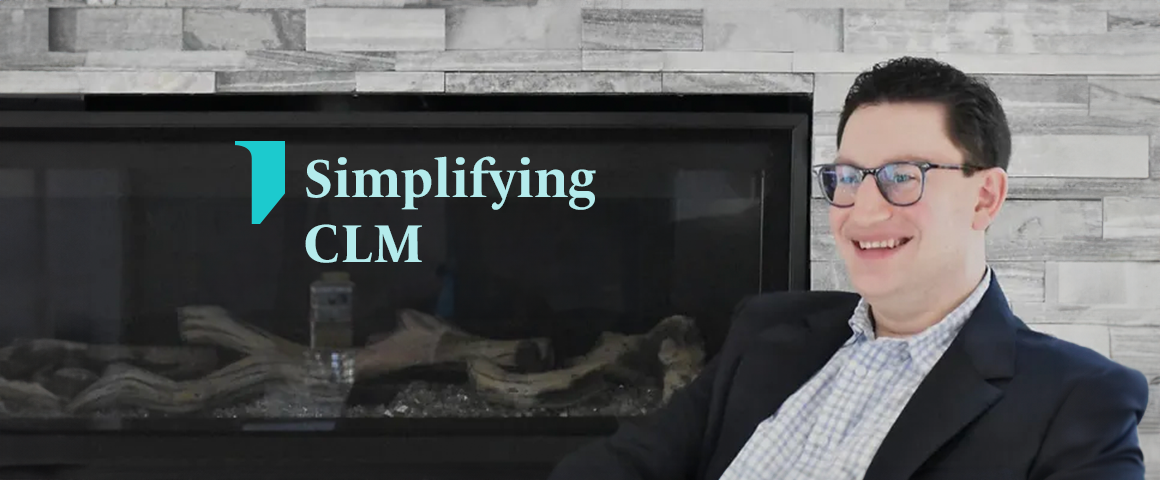Simplifying CLM & ChatGPT: A Colin Levy Interview
Oh man, it’s crazy that Legalweek is already here. Everyone is probably so excited to learn all sorts of new things and get the pulse on the industry. So to get started, we came up with some common questions that we have been asked and some great answers.
Question One: Now that the new year well underway, what CLM trends are emerging?
The first clear trend is a notable emphasis on the use of data and analytics in contracting. This can take many forms from robust reporting functionality to ad hoc analysis and data collection using AI-based tools. There now is the expectation that any CLM will be able to handle basic tasks like storing, searching for, and tracking contracts individually and in the aggregate. More advanced functionality is now being asked for and expected and it starts with how a particular CLM solution relies on artificial intelligence.
A second trend is the use of Generative AI tools like ChatGPT to provide immediate responses whether it be a potential new clause, alternative language or feedback on an agreement’s terms and favorability. CLM providers have been quick to pick up on this trend and rapidly incorporate ChatGPT into their offerings to provide users with a more responsive and customizable user experience.
A third trend is implementation. Now that CLM has been around for a little while, prospective buyers and users alike expect and want their CLM solution to seamless integrate into their existing tech stack and provide a user experience that doesn’t require a lot of switching between platforms or logging in or out of a lot of services. Another key element is that the CLM provider will be with the client at their side from the start to the finish of the implementation providing the groundwork for a lasting partnership.
Question Two: How might organizations overcome fear of starting or COURSE-CORRECTING their CLM journey?
Course corrections are never easy, especially when one felt that the initial course setting was done correctly and now needs to be changed. To get over this mentality, shift your focus from the past to the present. In practical terms this means talking to your stakeholders and getting their perspective on existing headaches and areas of friction.
It also means looking at, with the users always in mind, how your current technological tools achieve what is needed and how they do not do so. Can your current technologies be made better or does it require looking at a new solution? If a new solution is required, what are those requirements on both present and future needs? Finally, engage with users and stakeholders to understand what an ideal future state look like and establish a roadmap to getting there.
Question Three: There is a lot of buzz around ChatGPT. Can you tell us how ChatGPT can help the contract lifecycle management? Might you share some use cases?
ChatGPT has shown many the power and potential that tools like it hold. As for contracting, the use cases include:
- Contract Creation: Once you provide ChatGPT with what you like your contracts to contain, you can have create a basic first draft of an agreement you then can refine and put to use.
- Contract Review: You can ask ChatGPT to review an entire document or just a section to find potential issues, missing clauses, or risky language.
- Contract Improvement: With enough data, ChatGPT is able to provide suggestions for how to improve your agreement(s) whether in terms of its overall structure or with respect to a specific clause or set of clauses.
ChatGPT can effectively serve as your digitial guide ensuring that your contracting management efforts are on track and helping identify when things could go awry. Yet Generative AI technologies like ChatGPT are subject to several limitations including, but not limited to the scope of what it can do and potentially biased based on the data used to train it.
With data and analytics on the rise in contract management, there’s no better time than now to rely on advanced technologies like ChatGPT to help drive more productive and data-driven contract management processes. While it’s important to note that ChatGPT should not replace the advice of a licensed attorney, it can provide valuable insights and help your team streamline your contract management processes, reduce how long spent on contract management, and ultimately improve your bottom line.






